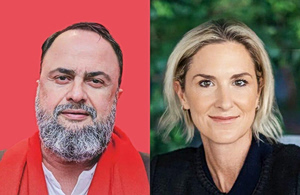DUBAI—The morning of Nov. 21, Rabbi Zvi Kogan left his home with no signs that anything was wrong. He hopped in his car, swung by the kosher grocery store in Dubai where he worked and exchanged texts with a friend he planned to spend the weekend with, telling him “sababa,” Hebrew slang for “cool.”
Then he disappeared.
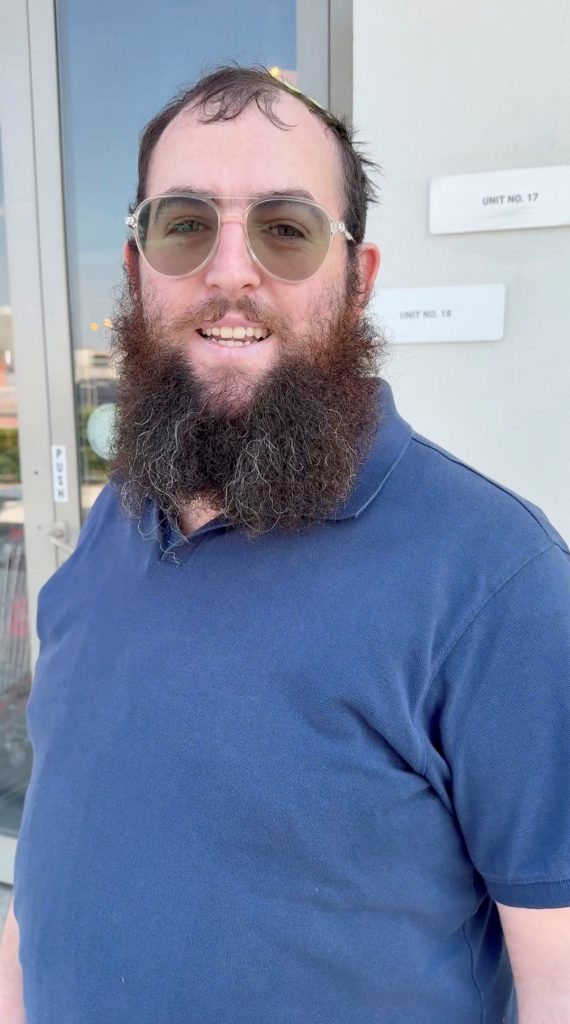
Zvi Kogan, an Israeli rabbi, stands outside a supermarket, in Dubai, United Arab Emirates, November 18, 2024. Rabbi Zvi Kogan had told friends that he never felt unsafe living in the Arab nation. @dudikepler/via REUTERS
Kogan never showed up for a dental appointment he had scheduled for the afternoon, people aware of his movements said. His wife, Rivky, worried, alerted the Jewish group he represented in the United Arab Emirates, Chabad, which contacted the authorities.
By then, kidnappers had snatched the religious leader and were driving him toward neighboring Oman, according to a person familiar with the investigation into his death.
Something disrupted that plan, and Emirati authorities later found Kogan’s dead body and car inside the U.A.E. near the border. Kogan’s friends and family told The Wall Street Journal it was a bloody end, though the exact circumstances around his death remain unclear.
The killing has shaken the small community of Jews who set up in the Gulf state in the wake of the Abraham Accords brokered during Donald Trump ’s first term as president and which normalized relations between Israel and the U.A.E. and three other countries. It is the first new Jewish community to be established in the Arab world since waves of native Jews were expelled in the decades following the establishment of the state of Israel.
With the blessing of local authorities, Jews established flourishing prayer communities , including at a top hotel on Dubai’s luxury Palm-shaped island, and attracted celebrity rabbis, local families, and visiting tourists.
The events sometimes hosted hundreds of people for a Friday night Shabbat meal, as more than a million Israelis visited the U.A.E. in the first three years after the Abraham Accords.
While a surge in antisemitic incidents in Europe and the U.S. in the wake of the war in Gaza has rattled Jewish communities there, the newly established Jews in the U.A.E. felt relatively protected. Local authorities had cautioned them to keep their activities discreet and anti-Israel protests had popped up in the online review pages for their businesses—but there was never a question of violence.
Kogan himself told friends he never felt unsafe living in an Arab nation. Over four years, the Israeli-Moldovan had become a fixture of the Jewish community in the U.A.E. He delivered challah bread to families for the weekly Shabbat meal and helped operate the country’s only kosher supermarket as part of his role in building Jewish life in the U.A.E. with Chabad, known for Jewish outreach initiatives in far-flung locales. That only made his killing all the more shocking.
“He was going about his regular life and never thought for a second anything was going on,” said Rabbi Sholom Duchman, whose son Rabbi Levi Duchman leads Chabad in the U.A.E. and is Kogan’s brother-in-law.
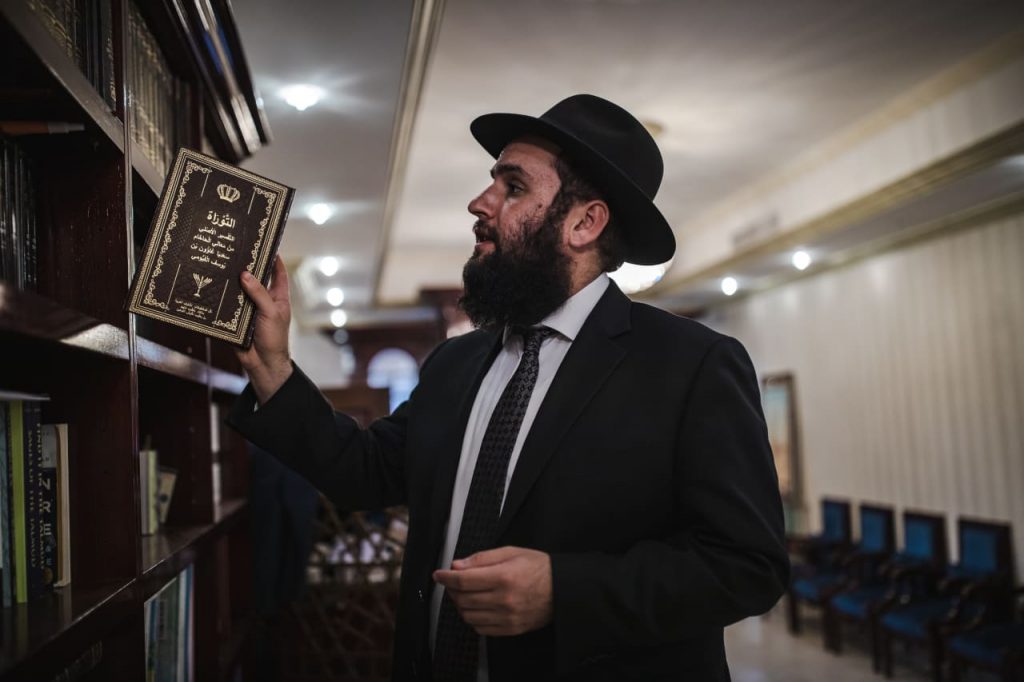
Rabbi Levi Duchman at the library of the Jewish Community Center of the U.A.E. in Dubai. Photo: Andrea DiCenzo for WSJ
Members of the local community said that for a brief period, they openly wore kippot, or skull caps, and advertised religious services, both unimaginable before the U.A.E. formalized its recognition of local Jewish practice in 2019 during a push for societal tolerance. Until then, Jews who lived in the country had largely worshiped out of sight in private homes. But now with the Gaza war, public Jewish prayer has been all but shut down, and they are back to holding discreet, private services.
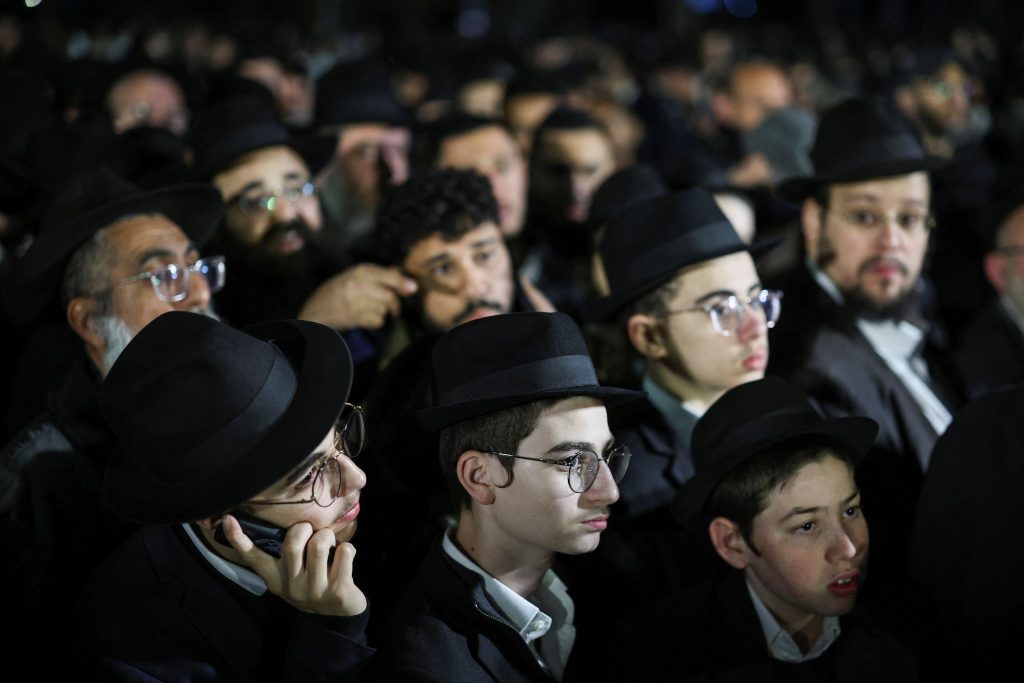
People gather on the day of the funeral of Israeli rabbi, Zvi Kogan, who was found murdered in the United Arab Emirates in what Israeli Prime Minister Benjamin Netanyahu described as a heinous antisemitic act, in Kfar Habad, Israel, November 25, 2024. REUTERS/Stoyan Nenov
Kogan’s killing is also putting a spotlight on the nascent relationship between Israel and the U.A.E., once hailed as an example of the changing geopolitical dynamics of the Middle East.
Before the wars in Gaza and Lebanon, Gulf states led by the U.A.E. had begun deepening ties with their once-ostensible enemy Israel. Saudi Arabia, the Arab world’s biggest power, was also inching toward that goal. With a cease-fire in Lebanon , the U.S. hopes to end the fighting in Gaza and again give Saudi Arabia and Israel the space to consider normalizing relations.
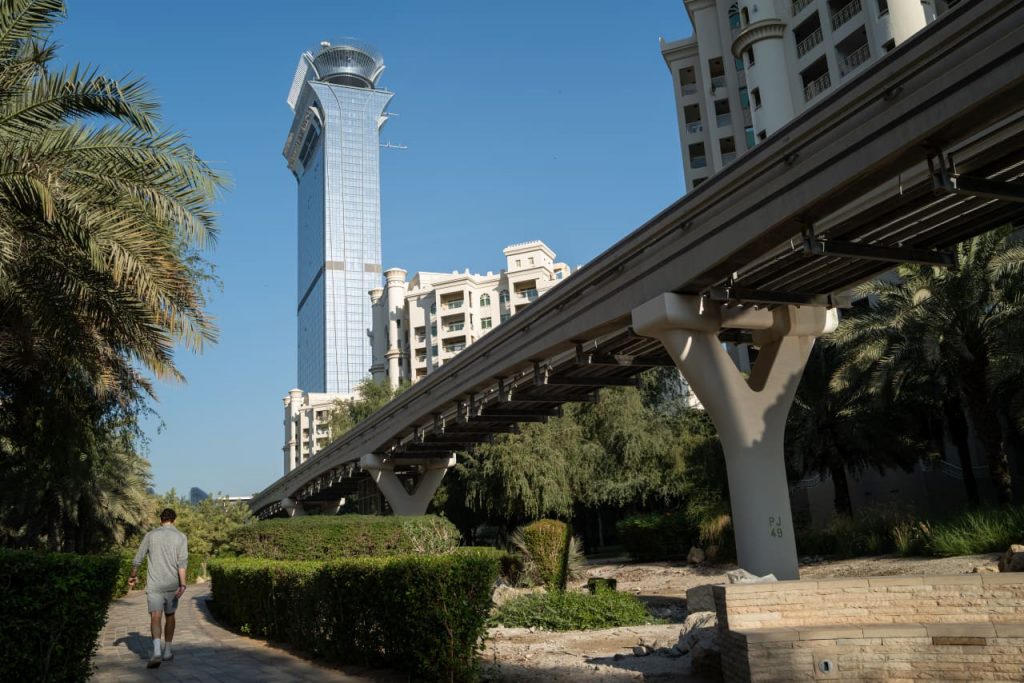
The Dubai hotel where the city’s Jewish community previously held worship. Photo: Christophe Viseux for WSJ
The U.A.E. is still investigating the circumstances of Kogan’s death and has arrested three Uzbek nationals in connection with the killing. The Journal has reported that the three suspects fled the U.A.E. to Turkey before they were transferred back to the Gulf state.
Israel has called the killing an “act of antisemitic terrorism.” Yousef Al Otaiba , the U.A.E. ambassador to Washington who helped negotiate diplomatic ties with Israel, has said Kogan’s killing was an attack against the Gulf state and its values of freedom of worship.
Former White House Middle East adviser, Jared Kushner , who worked with Otaiba on the diplomatic agreement, on Monday said that he and his wife Ivanka Trump , President-elect Trump’s daughter, would donate $1 million to the Chabad movement in the U.A.E. His brother, investor Joshua Kushner , also has promised to match the donation to the New York-based Orthodox movement, which is focused on serving Jews in far-flung places.
Kogan was buried in Israel on Tuesday, and U.A.E. officials have since visited his family members as they sit shiva, a Jewish tradition where people spend seven days at home welcoming friends and strangers to mourn loved ones.
His killing, though, has left a shocked community searching for answers and reassessing vulnerabilities. Emirati authorities had already asked the Jewish community to lower its profile amid tensions caused by the Hamas-led Oct. 7, 2023 attack on southern Israel and the multifront war in the Middle East.
Nine out of 10 people in the U.A.E. are foreign born, and the country has a large Arab population sympathetic to the Palestinian cause.
Jewish community members said there were several incidents where Jewish students were harassed by peers at schools, who pushed them or yelled “Free Palestine” at them. The incidents, they said, were quickly shut down by school or local authorities.
People also took to Google reviews over the past year to lower the ratings for Rimon, the supermarket where Kogan worked. Users wrote one-star reviews with veiled pro-Palestinian comments, such as saying the supermarket didn’t have watermelons, a nod to the red, black, white, and green of the Palestinian Authority’s flag.

The Rimon supermarket in Dubai where Rabbi Zvi Kogan worked was temporarily shuttered after his killing. Photo: Christophe Viseux for WSJ
Still, economic ties between Israel and the U.A.E. have remained strong.
Bilateral trade in physical goods grew to $2.75 billion in the first three quarters of 2024 from $2.55 billion in the previous year, with a large portion representing commercial goods in transit as Dubai is used as a hub for Israeli exports like diamonds and precious metals, an Israeli official said. Emirati airlines also kept their flight links active to Israel even as many international carriers cut service, giving Israelis a route to the rest of the world.
With Kogan in a central role, the Chabad movement continued to be one of the most visible elements of the U.A.E.’s Jewish community. Chabad’s emissaries helped run a certification agency for kosher food outlets, the Rimon supermarket and a children’s nursery.
Kogan developed extensive relationships with more liberal, less observant Jews in the U.A.E. and several flew back with his family to Israel and helped arrange the funeral.
Chaim Heber, a friend who was texting with Kogan shortly before the rabbi’s abduction, said he was an open and warm person who made people feel welcome in the Emirates. “He was the first person to visit us and say ‘Hi’ ” when Heber moved to Dubai, Heber said.
After Kogan’s death, the Chabad group in the U.A.E. has vowed to maintain its presence in the country, where he saw his mission as helping the tightknit Jewish community, his friends said.
“He cherished every single moment that he was there,” said Sholom Duchman.
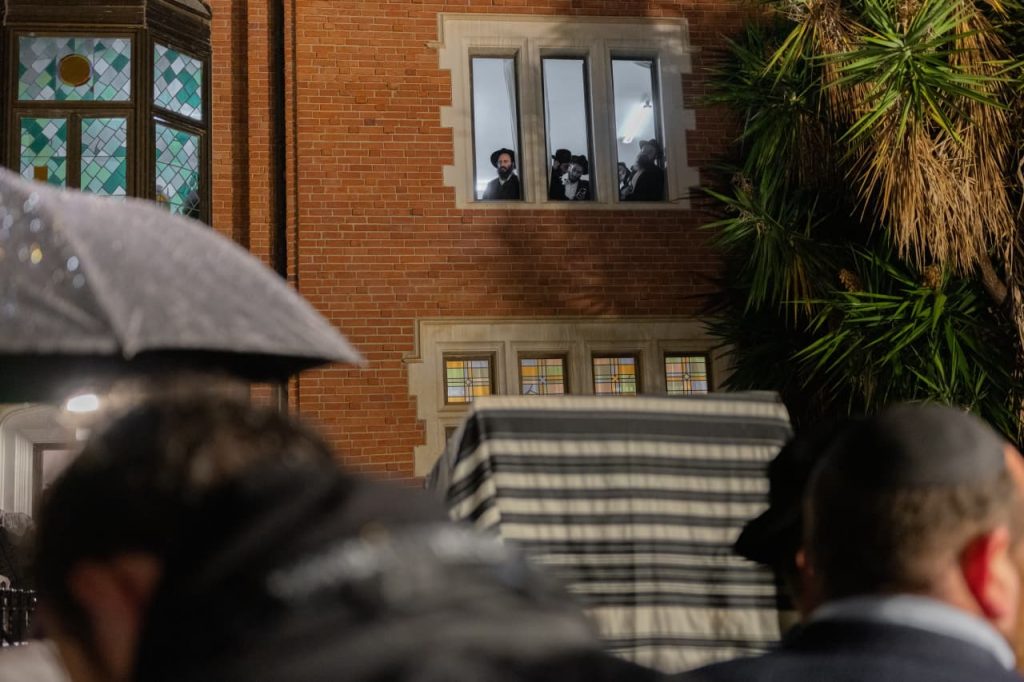
Mourners at the funeral in Israel of Rabbi Zvi Kogan. Photo: Amit Elkayam for WSJ
Write to Rory Jones at Rory.Jones@wsj.com and Dov Lieber at dov.lieber@wsj.com

